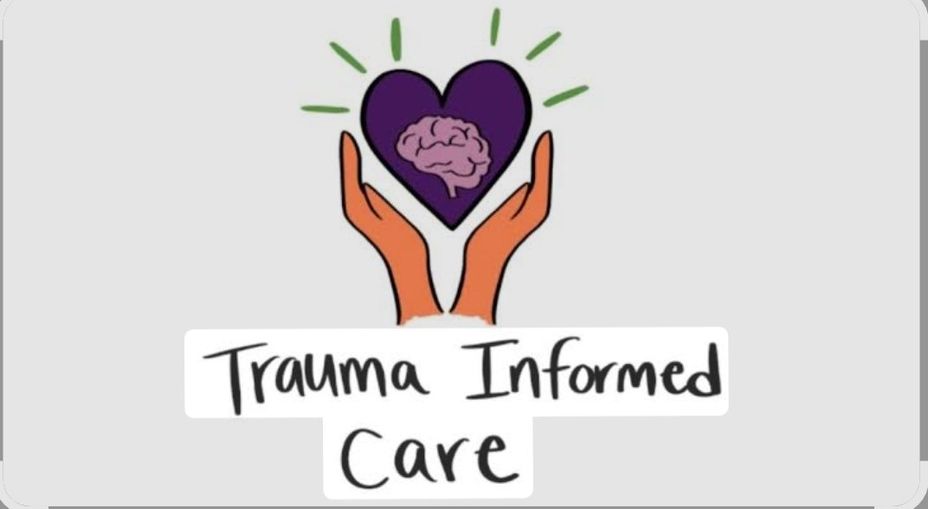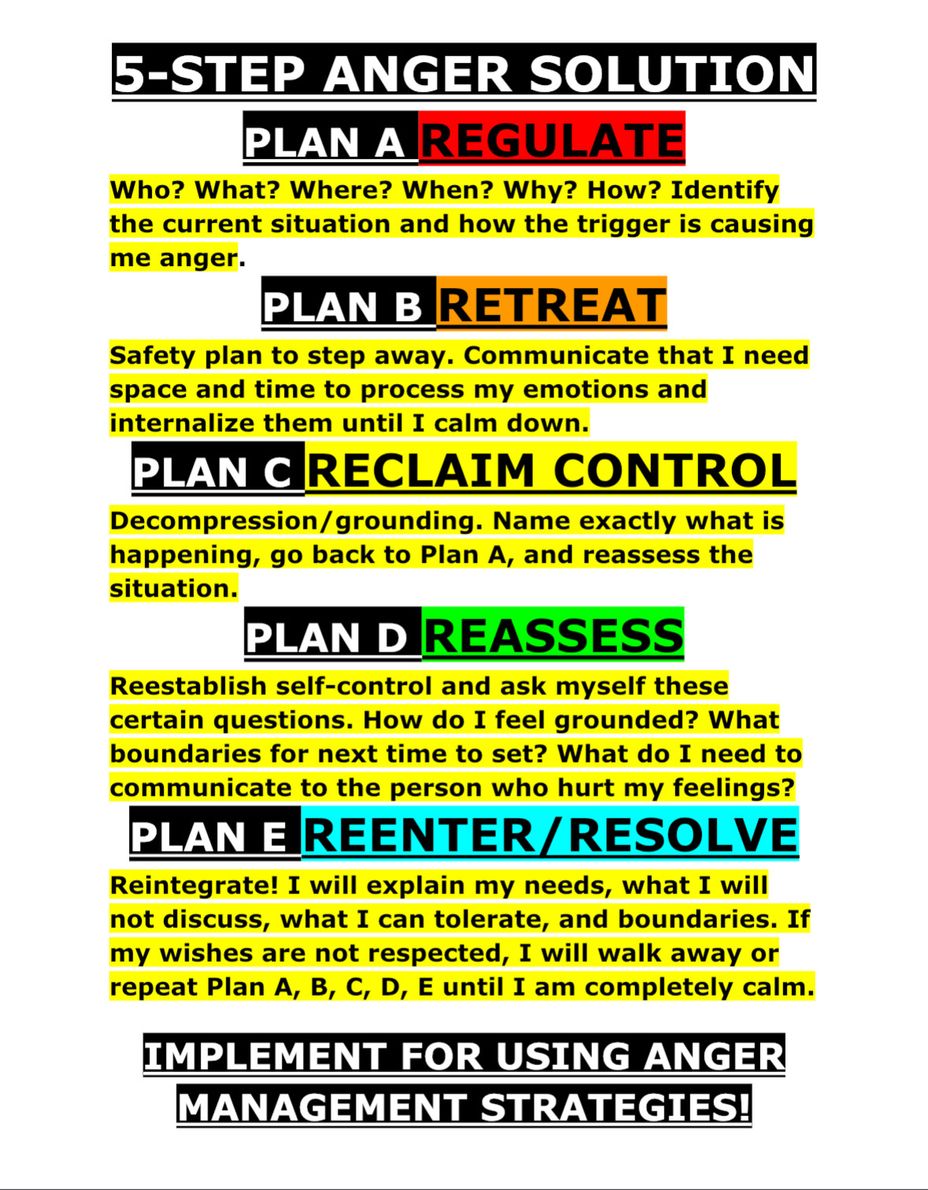When I first became ill 18 years ago, no one turned toward me. Everyone left me. During that time, it felt like everyone else was achieving their dreams and aspirations while I was left behind.
I have spent many dark days wondering: is it possible to be this alone, cast adrift in time, where no one knows how the day arrives or even why? Is it possible that in this vast universe, no one can hear me? Is it possible that no one can lend a hand?
The hours, minutes, and seconds were so heavy. Outside, the world kept moving; people were happy, fulfilling their wishes. After the death of my only sister, I became even more solitary and broken. No one paid attention.
I was forgotten and cast aside a long time ago, but I have realized I need no one. I will continue and I will win on my own. I will move forward alone, just as I have felt from the very first day. God waits but does not neglect. My day will come, my destination will arrive, and I will finally find my rest.
#MightyTogether #Loneliness #Grief #MentalHealth #BipolarDisorder
Neglect
Neglect

Why Trauma-Informed Care Is Essential in Child Welfare Systems By BigmommaJ
Child welfare systems exist to protect children from harm. Yet for many children and families, involvement with these systems becomes another layer of trauma rather than a pathway to safety and healing. This paradox is not the result of individual failure—it is the result of systems responding to trauma without being designed to understand it.
Trauma-informed care is not an enhancement to child welfare practice. It is a foundational requirement for ethical, effective, and humane intervention.
Child Welfare Is Inherently Trauma-Exposed
The overwhelming majority of children and families involved in child welfare have experienced multiple, chronic adversities long before a report is ever made. These experiences often include:
*Physical, emotional, or sexual abuse
*Chronic neglect
*Exposure to domestic violence
*Parental substance use and untreated mental illness
*Poverty and housing instability
*Systemic racism and discrimination
*Intergenerational and historical trauma
*Separation from caregivers, siblings, culture, and community
Research consistently demonstrates that child welfare–involved populations have significantly higher Adverse Childhood Experiences (ACEs) scores than the general population, placing them at increased risk for lifelong physical, emotional, and relational difficulties (Felitti et al., 1998; Anda et al., 2006).
Without a trauma-informed framework, child welfare systems risk responding to trauma symptoms as behavioural problems, rather than as adaptive survival responses.
Trauma Shapes Behaviour, Not Morality
Trauma alters neurodevelopment, particularly when experienced in early childhood. It impacts:
*Emotional regulation
*Stress response systems
*Attachment and trust
*Impulse control
*Cognitive processing
*Sense of safety
In child welfare contexts, these trauma responses are frequently misinterpreted as:
*Defiance
*Aggression
*Manipulation
*Non-compliance
*“Lack of insight” or “poor motivation”
A trauma-informed lens reframes the central question from:
“What’s wrong with this child or parent?”
To
“What happened to them, and what do they need to feel safe enough to change?”
This shift is not semantic—it fundamentally alters assessment, intervention, and outcomes.
System Involvement Can Re-Traumatize
Even when removal is necessary for safety, child welfare involvement is itself a potentially traumatic experience. Children often experience:
*Abrupt separation from caregivers
*Loss of routine, identity, and belonging
*Placement instability
*Repeated retelling of traumatic experiences
*Lack of voice or agency in decisions affecting their lives
Parents experience:
*Shame, fear, and grief
*Loss of autonomy and parental identity
*Heightened surveillance
*Re-activation of their own unresolved trauma
Without trauma-informed care, standard child welfare practices—court processes, compliance-based case plans, rigid timelines—can unintentionally replicate dynamics of powerlessness and control, undermining engagement and long-term safety.
Trauma-Informed Care Improves Outcomes
Evidence-informed trauma-responsive child welfare systems demonstrate:
*Greater placement stability
*Improved caregiver-child relationships
*Increased family engagement
Higher rates of successful reunification
*Reduced use of punitive or coercive practices
*Improved permanency outcomes
Trauma-informed care recognizes that regulation precedes reasoning. When people feel safe, they are neurologically capable of learning, reflecting, and changing.
Fear-based compliance may satisfy short-term system goals—but it does not create sustainable safety.
Reflection: A Child Welfare Lens
As a child welfare professional, I have seen how easily trauma is mislabeled as resistance—and how devastating that misinterpretation can be.
I have watched children punished for behaviours that were, in truth, survival strategies learned in unsafe environments. I have seen parents deemed “uncooperative” when their nervous systems were locked in fight, flight, or freeze. I have witnessed systems demand emotional regulation, insight, and compliance from people who had never been offered safety, consistency, or trust.
Trauma-informed care challenges us—not just to change how we intervene, but to examine how power is exercised within systems.
*It asks us to slow down in systems designed for speed.
*To listen in systems designed for documentation.
*To see humanity in systems trained to assess risk.
Child welfare does not operate in a vacuum. Many families enter the system already failed by mental health services, addiction supports, housing systems, education, and healthcare. By the time child welfare intervenes, the harm is rarely new—it is cumulative.
If we do not practice trauma-informed care, we become another chapter in that harm.
Trauma-Informed Care Is Also a Workforce Issue
Child welfare professionals are exposed daily to secondary trauma. Without organizational trauma-informed practice, workers experience:
*Compassion fatigue
*Burnout
*Emotional numbing
*High turnover
*Reduced decision-making capacity
A trauma-informed system must support reflective supervision, manageable caseloads, and psychological safety for staff. A dysregulated workforce cannot effectively serve dysregulated families.
Equity, Culture, and Historical Trauma
In Canada, Indigenous, Black, and racialized families are vastly overrepresented in child welfare systems. This reality cannot be separated from:
*Colonization and residential schools
*Forced child removals (e.g., the Sixties Scoop)
*Systemic racism
*Intergenerational trauma
Trauma-informed care, when paired with cultural humility and anti-oppressive practice, is essential to preventing the repetition of historical harm under modern policy frameworks.
Without this lens, child welfare risks perpetuating the very injustices it claims to address.
Call to Action
Trauma-informed care must be embedded at every level of child welfare:
*Legislation and policy
*Intake and investigation
*Court processes
*Placement decisions
*Case planning and timelines
*Permanency planning
Workforce development
Children and families do not come to child welfare because they failed.
They come because systems failed them first.
If child welfare is truly about protection, then trauma-informed care is not optional—it is an ethical obligation.
BigmommaJ
#traumainformedcare #MentalHealth #Recovery

How to Fully Destroy a Narcissistic Abuser #NarcissisticPersonalityDisorder #dark /superempath
I was just diagnosed with autism and ADHD at the ages of four and seven respectively. I had a 504 in place, but no one ever treated me as though I mattered, and they were simply following the law. Most teachers and every single betrayed me in one way or some other. The worst was an ablest teacher in that high school who taught AP World History. I knew this was no different than anyone else, but she completely went overboard with me having to wipe my nose with her around, teaching me apparently outside the classroom. She did not understand my allergies. She infantilized me by sitting me apart from everyone else, and people would stare at me. I felt watched under constant microscope of smothering and suffocating surveillance and freebie answers I wanted instead to find on my own. Yay, 9th Grade was over and so was that textationship for 2-week love-bombing on my side to help a vulnerable/covert narcissist feel more confident in her self-image. I was uplifting, not controlling as she was real control freak. I was publicly humiliated, had my own stuff licked, my own privacy invaded twice (stolen number, using mutual friends’ numbers), and the worst of the worst, being betrayed by the last psycho boyfriend #6 and two women children filing restraining orders over burner accounts I used to get rid of them as in telling them to F*** off. First was a reassurance junkie like I always been especially she bullied, harassed, ostracized, abused, deceived, betrayed, and traumatized me after the first boyfriend incident two years ago. Second was an egregious crybaby, who cannot handle anything but a narcissistic supply of histrionic tendencies for attention in court. I do not say this to cause any scandalous defamation, but to defeat a narcissist, you have five ways to do so. You can black rock them where you really go AWOL and have no contact whatsoever. If the situation requires you to be present with them, be a gray rock. Look as unassuming and as boring as possible. One-wording, but not yessing everything they say, but giving a nod, shrug, or “K” that does not give them at all, if not very little ammunition. It drove the last call crazy before she flipped the scenario on me and reversed the entire story projecting her insecurities. She embellish the truth to the judge and made up lies. What we and the judge did was give in to her so she could just shut up. Then, he took out all her accusations on the worst kind of mutual restraining order in my life. Also you can give a narcissist way too much supply. Give them so much power that they have no idea what to do with that. Overwhelmed their ego to where it falls and breaks them into a narcissistic mortification or collapse. Additionally, mirror their actions. A narcissist may act like they love themselves, but they have no internal validation, which is why they rely on that narcissistic supply. if it is possible, the one thing they despise most is themselves, which is why they require others to understand them and feed into their nasty behaviors to enable them and justify just how they act when they know deep down it could be wrong. Help them base their own demons by showing them exactly how they treat you. Ostracize them from your life and cut them out like they did to you in the discard phase. Here, however, this is the most dangerous technique on dealing with a narcissist. Use it very sparingly and only a last resort. The big whole smear campaign and proxy wars. If you must, you can turn everything they have said against them and twist their words exactly as they do to yours to gaslight, victim-blame, or neglect your needs. Never allow them to be that close to you. Know at any second you can sue them right after you broke down their walls and infiltrated them so much they are in infatuated with you and they will not fight for themselves. Make them just love-bomb you so much that they do not care if you go to court and will not retaliate. That was the last strategy for how I deal with narcissists but I’ve never gone to court over them before. I do allow myself to black rock them most of the time and have them learn to embarrass themselves on their own because they are extremely good at humiliating who they are and destroying their identity when faced with new adversity in the highest form of a mess they created not me or you or anyone but themselves. Let them dig their own social grave. You can’t fix stupid, but you can let it break someone. Not that that’s nice, but if you need to step away and walk away forever for your life, that is your own prerogative and volition. If you feel you are in a abusive toxic relationship, do not hold back. Never let them devalue you and then worship you as if a goddess or God. They love to suck up to their authorities and create institutional pity. They can abuse their own power and influence to control you, but I never let them. They never knew behind the scenes. I was always the one controlling them to make them head to the extremes and destroy themselves so much that they will never come back from it. I never lost my power, but for those who have, take it back! Show they how strong we all are as one unified front on the Mighty! If anyone needs any pointers, I am always available to talk. I, too, am gifted at art as well. If you would like to be taught in any way or form I would do it completely cost free out of the kindness of my heart, you can ask me for that as well. I hope my blog gives you bliss. Below is a strategy on how to manage anger I learned from 988 and it has worked miracles in my life just like the WRAP (wellness, recovery, action plan). Make your own strategies and learn to help me help you through my insights. Take this from a dark empath that fights behind the scenes to try and protect those I care about, which is now everyone in this community who deserves to be treated with humanity and not cruelty. I hope my message finds you well! Enjoy!

Mental Health and Stigma: When Survival Is Misunderstood—and Healing Is Judged By BigmommaJ
Mental health struggles do not exist in isolation. They are shaped by experiences, environments, systems, and relationships—many of which were never safe to begin with.
Yet stigma continues to frame mental illness as a personal failure rather than a human response to adversity.
Research consistently shows that stigma is one of the greatest barriers to seeking mental health support, often leading to delayed treatment, increased distress, and poorer outcomes (Mental Health Commission of Canada [MHCC], 2022). Stigma is not just uncomfortable—it is harmful.
For individuals impacted by trauma, child welfare involvement, addiction, and recovery, stigma often becomes an additional wound layered onto an already heavy history.
Where Stigma Begins
Mental health stigma thrives where understanding ends.
It shows up when behaviors are judged without context, when trauma responses are labeled as defiance or manipulation, and when people are reduced to diagnoses instead of seen as whole human beings shaped by what they have lived through. Language and labeling play a critical role in reinforcing stigma, particularly within systems meant to provide care (Herman, 2015).
Stigma asks, “What’s wrong with you?”
Trauma-informed care asks, “What happened to you?”
This shift in perspective is foundational to trauma-informed practice and is supported by evidence demonstrating improved engagement and outcomes when individuals feel understood rather than blamed (SAMHSA, 2014).
Child Welfare, Trauma, and the Mental Health Continuum
Children involved in child welfare systems are disproportionately exposed to adverse childhood experiences (ACEs), including abuse, neglect, domestic violence, parental substance use, and chronic instability (Public Health Agency of Canada [PHAC], 2023).
These experiences do not disappear with time—they embed themselves in the nervous system, shaping attachment patterns, emotional regulation, and coping strategies across the lifespan.
The landmark ACEs study established a strong, graded relationship between childhood adversity and later mental health challenges, substance use disorders, and chronic physical illness (Felitti et al., 1998).
Despite this evidence, individuals with child welfare histories are often stigmatized for the very adaptations that helped them survive early adversity.
What we label as “problem behavior” is frequently a trauma response.
What we punish is often pain.
Addiction: A Stigmatized Trauma Response
Addiction remains one of the most stigmatized mental health conditions, particularly when it intersects with trauma histories.
Research shows that a significant proportion of individuals with substance use disorders have experienced childhood trauma, neglect, or violence (SAMHSA, 2014).
Substance use is often an attempt to regulate overwhelming emotions, numb intrusive memories, or create a sense of control when safety was never guaranteed.
Neurobiological research supports that trauma alters stress and reward pathways in the brain, increasing vulnerability to substance use as a coping mechanism (Herman, 2015).
Yet stigma continues to frame addiction as moral failure rather than a health condition, leading to:
*Delayed help-seeking
*Increased shame and secrecy
*Higher relapse rates
*Reduced access to compassionate care
Addiction is not a lack of willpower. It is a nervous system searching for relief.
Personal Reflection: What I’ve Seen—and Lived
Working within child welfare, alongside my own healing and recovery journey, has taught me that people are rarely broken—they are burdened.
I have seen children labeled “difficult” when they were terrified.
Parents judged as “unmotivated” when they were navigating unresolved trauma.
Individuals dismissed as “addicts” instead of recognized as survivors.
I have also lived the impact of stigma—the way it follows you into systems, appointments, and even your own internal dialogue.
Research confirms that internalized stigma significantly worsens mental health outcomes and reduces self-efficacy in recovery (MHCC, 2022).
Recovery, for me, was not just about changing behaviors. It was about unlearning shame. About recognizing that survival does not require justification. And about understanding that healing is not linear—a reality well documented in trauma and recovery literature (Herman, 2015).
Recovery Is Not an Endpoint—It Is a Practice
Recovery is often portrayed as a finish line. In reality, it is an ongoing process of self-regulation, self-awareness, and reconnection.
Evidence-based models of recovery emphasize that healing occurs over time and requires safety, trust, and empowerment (SAMHSA, 2014).
Recovery can mean:
*Learning safer coping strategies
*Rebuilding trust with self and others
*Naming trauma without being defined by it
*Choosing growth even when it’s uncomfortable
Stigma tells people they should be “over it by now.”
Recovery science tells us otherwise.
From Awareness to Action
Public awareness of mental health has increased, yet stigma continues to shape who is believed, who receives care, and who is left behind.
The Mental Health Commission of Canada (2022) emphasizes that meaningful change requires systemic, trauma-informed approaches rather than crisis-driven or punitive responses.
Action looks like:
*Trauma-informed child welfare and mental health systems
*Integrated treatment for mental health and addiction
*Language that reduces shame and increases engagement
*Early intervention rather than crisis-only care
Mental health care must do more than manage symptoms—it must restore dignity.
The Vision: Rise Above Your Norm
Rise Above Your Norm is not just a blog—it is the foundation of a future private practice rooted in lived experience, clinical understanding, and evidence-based, trauma-informed care.
This practice is being built to serve individuals who have been historically misunderstood or marginalized within systems:
*Those with complex trauma histories
*Individuals impacted by child welfare involvement
*People navigating addiction and recovery
*Families working to break generational cycles
*Thos affected by sexual abuse, exploitation and domestic violence
Research consistently shows that trauma-informed, person-centered care improves engagement, outcomes, and long-term recovery (SAMHSA, 2014; MHCC, 2022).
What This Practice Will Stand For
This space will be:
*Trauma-informed, grounded in ACEs and neurobiology research
*Non-judgmental, rejecting shame-based models
*Integrated, addressing mental health and addiction together
*Grounded in dignity, recognizing lived experience as expertise.
Healing should not require proving your pain. It should meet you where you are.
A Call to the Community
*If you are a professional: examine your language and assumptions.
*If you are a policymaker: invest in prevention, not punishment.
*If you are a loved one: replace judgment with curiosity.
*If you are struggling: your healing is valid—even when it is nonlinear.
Reducing stigma is a shared responsibility—and one that directly impacts lives (MHCC, 2022).
A Final Word
Mental health struggles are not evidence of weakness. They are evidence of endurance.
The work ahead is not easy—but it is necessary.
This is how we rise:
*By choosing understanding over stigma.
*By building systems that reflect real lives.
*By believing people are worthy of care long before they reach rock bottom.
This is the work of Rise Above Your Norm.
And this is only the beginning
BigmommaJ
#Stigma #MentalHealth #Addiction #change

Surviving Mental Health: When Staying Alive Is the Work By BigmommaJ
Surviving mental health is rarely discussed honestly.
Much of the public conversation focuses on thriving, healing, or overcoming. While those are meaningful goals, they often overlook a critical reality: for many individuals living with mental illness, complex trauma, or co-occurring substance use, survival itself is the work.
Survival is not passive.
It is an active, ongoing process of regulation, endurance, and adaptation—often happening quietly, without recognition.
What “Surviving” Really Means From a Trauma-Informed Lens
Clinically, survival reflects the nervous system doing exactly what it was designed to do: protect.
When a person has experienced chronic stress, interpersonal trauma, neglect, abuse, or repeated loss, the brain and body may remain in a heightened state of alert long after the danger has passed. This prolonged activation of the stress response system impacts emotional regulation, decision-making, and physical health (McEwen, 2007).
Canadian trauma frameworks recognize that many mental health symptoms are rooted in unresolved trauma and adverse experiences, particularly when exposure occurs early or repeatedly (Public Health Agency of Canada [PHAC], 2018).
From a trauma-informed perspective, survival can look like:
*Emotional dysregulation or rapid mood shifts
*Hypervigilance, anxiety, or chronic fear
*Emotional numbing or dissociation
*Difficulty trusting others or forming stable attachments
*Avoidance, shutdown, or withdrawal
*Impulsive or self-soothing behaviors, including substance use
These responses are often misunderstood or pathologized. Clinically, they are adaptive survival strategies developed in environments where safety was inconsistent or absent (Herman, 1992; CAMH, 2021).
Neuroscience research consistently shows that trauma alters how the brain processes threat, emotion, and memory. Structural and functional changes in the amygdala, hippocampus, and prefrontal cortex affect fear response, emotional regulation, and impulse control (Teicher et al., 2016; van der Kolk, 2014).
Canadian clinical guidance emphasizes that these neurobiological changes are not character flaws—they are learned survival responses shaped by experience (CAMH, 2021).
This is why telling someone to “just calm down” or “move on” is not only dismissive, but clinically inaccurate.
The brain learned survival
before it learned safety.
Survival Is a Valid Clinical Phase—Not a Failure
Recovery from mental illness and trauma is non-linear. Both Canadian and international trauma models identify stabilization and safety as the first phase of recovery—often long before insight, growth, or symptom reduction is possible (Herman, 1992; SAMHSA, 2014; PHAC, 2018).
At times, survival may look like:
*Attending therapy while still struggling daily
*Using medication while navigating shame or ambivalence
*Harm reduction rather than immediate abstinence
*Pulling back socially to prevent emotional overload
*Staying alive through periods of suicidal ideation
From a trauma-informed clinical lens, survival is not regression—it is groundwork.
Without safety and nervous system regulation, deeper healing cannot occur.
The Hidden Grief of Surviving
Survival often carries grief that remains unspoken.
Grief for:
*The life that feels harder than it should
*Relationships lost to symptoms or misunderstanding
*Opportunities missed due to illness or instability
*The version of self that existed before the trauma
Canadian mental health literature increasingly acknowledges the role of grief and loss in long-term mental health conditions, particularly for individuals with trauma histories or chronic diagnoses (Mental Health Commission of Canada [MHCC], 2019).
Healing does not require gratitude for trauma.
It requires validation, compassion, and time.
Moving From Survival Toward Stability
Trauma-informed care does not rush people out of survival mode. Instead, it prioritizes:
*Establishing internal and external safety
*Strengthening emotional regulation skills
*Supporting healthy attachment and boundaries
*Reducing shame through psychoeducation
*Honoring autonomy, choice, and pacing
Polyvagal theory further supports Canadian trauma models by emphasizing how healing occurs through repeated experiences of safety and connection, allowing the nervous system to move out of chronic defense (Porges, 2011).
For some, this process is slow. For others, it unfolds in cycles. Both are clinically expected—and valid.
Personal Reflection: Survival Is the Part No One Applauds
There were seasons of my life where survival was all I had to offer.
Not growth.
Not stability.
Not strength the way the world defines it.
Just survival.
As someone who has worked in child welfare and mental health, I understand the clinical language—the diagnoses, the treatment plans, the frameworks. But I also know what it feels like to live inside a nervous system that never learned safety first.
I know what it means to function on the outside while unraveling internally.
To be judged for coping mechanisms that once kept me alive.
To be told I was “going backwards” when, in reality, I was still here.
Survival doesn’t announce itself.
It doesn’t look inspiring.
But it is brave.
And if you are surviving your mental health right now—quietly, imperfectly, painfully—please hear this:
You are not failing.
You are not weak.
You are doing the hardest work there is.
Staying.
BigmommaJ
#mentalhealthmatters #Surviving
"Survivor": I Finally Understand
'Survivor' used to be a difficult word for me, and that’s a gentle way to put it. Old journals state it more forcefully: “I despise this word.”
While well-acquainted with surviving, in no way did I consider myself a survivor. I was a mess; my life always on the edge of destruction, edges so raw I’d flinch at the wind. I hardly knew what I was surviving, I just kept shoving through the tangles as they came.
“I’m hanging on,” I’d grin through gritted teeth and clenched fists, “I’m still here.”
It got to where it felt as if the survival itself was killing me. I was still alive, but I was no survivor. I wasn’t living my life, I was barely making it through.
Even after I became excruciatingly aware of our internal mechanics, I rebelled. Even when darker implications of my childhood came into focus, I resisted, insisting I couldn’t be a survivor because my surviving was still ongoing.
Back then I couldn’t understand how every moment I spent fighting for myself made me a survivor. How every scrabbling step I took out of my own chaos made me a survivor. How all my daily surviving already made me a survivor.
Being a survivor isn’t something that happens in the past tense, but I couldn’t see that until I was no longer living in constant survival mode.
Moving beyond survival is the clearing after the thorny, pathless thicket, the gulp of air after swimming back from the deep end. Moving beyond survival helped me see the survivor I already was, to see how far I’d come and what I’d come through.
I survived the unwanted, the unsolicited, the unprompted; the neglect, resentment, and devastation. I’ve survived every single moment of my life; every sharp word flung, every weaponized emotion. Every numbed morning, every suicidal evening. Every disruption, every panic attack, every flashback.
I survived the events, I survived the survival, I am surviving the remembering, and in the wake of it all, I am thriving.
'Survivor.'
Now I see the strength living in that word. I see the flames hiding in its shadows, the blessing within its curse. It’s neither a pretty word nor a pretty implication. But it’s a resilient, teeth-gritting white-knuckling word, and staunchly, stubbornly rooted in truth.
And it’s exactly what I am.
___
May 31, 2023 © ThrivingWhileMultiple
#ComplexPosttraumaticStressDisorder #Trauma #DissociativeIdentityDisorder

Give yourself a minute
i think we all see how the world is actually, what is concerning and sad. often we neglect our own peace and worry about everything.
it is important to give ourselves little reminder. take care of yourself , you matter to people, you matter to us, you matter to me. sharing is caring.
you are to be held, not to be missed
with love and best greetings
Aardvarh
THEY JUDGED YOU — BUT THEY NEVER WALKED YOUR ROAD - IT HURTS FIRST - People critique what they’ve never carried. They measure your path without walking its fire.
But God saw it all—the tears behind the silence,
the courage it took to keep showing up with grace when no one knew the weight. They judged what they didn’t understood.
They whispered about your wounds as if your scars were sins.
But they weren’t there when you were bleeding.
They weren’t there in the silence that shaped you.
They don’t know what it cost to keep breathing when shame wanted you silent.
You weren’t dramatic. You were in spiritual labor.
You weren’t rebellious. You were surviving religious fire without water.
You weren’t overreacting. You were under-supported.
They never saw the nights you didn’t think you’d make it.
They never heard the prayers that had no words left.
And yet—they had opinions.
THE LORD IS SAYING:
“I was there in the agony they dismissed.
I stood beside you when they only stood against you.
They saw the shell—I saw the soul.
They judged the symptom—I saw the story.
Let them speak—I will silence shame.
Let them stare—I will restore your strength.
You are not the image they painted.
You are not the lie they repeated.
You are My testimony in the making.
You are My beloved—still becoming.”
Holy whispers:
“Let no tongue redefine you.
Let no stare shrink you.
Let no label limit you.
The Spirit that raised Christ is inside you—not their words, not their verdicts, not their shame.”
MENTAL HEALTH REVELATIONS
1. Chronic judgment leads to internalized shame and identity confusion.
2. Religious judgment often disguises spiritual neglect.
3. Empaths and sensitive souls are more prone to take false guilt as truth.
4. Hypercriticism from others can create trauma loops in the nervous system.
5. When your pain is invalidated, it rewires trust—especially toward yourself.
6. The enemy uses judgment to arrest your voice before it becomes a trumpet.
7. Shame is not a fruit of the Spirit.
8. Not all feedback is holy—discern the spirit behind the correction.
9. Spiritual gaslighting is real, and it trains you to distrust your discernment.
10. God’s voice convicts to restore. Man’s voice often condemns to control.
PROPHETIC DECLARATIONS
1. I declare you are breaking free from the echo of judgment.
2. Your identity is not up for debate—it is sealed in Heaven.
3. No longer will you apologize for surviving what they’ll never understand.
4. You are rising from false shame into full spiritual authority.
5. You will no longer shrink to fit religious rooms.
6. You are not too much—you are precisely marked.
7. Every lie spoken against your character is being reversed by truth.
8. The Holy Spirit is restoring your emotional clarity.
9. The opinions of man will never outweigh the decree of God.
10. You are loved, chosen, anointed—and still being written by the Author of Grace.
10 HEAVENLY WHISPERS
1. “Let the judges sit—I’ve already ruled in your favor.”
2. “They called you broken—I call you beloved.”
3. “Their rejection was not your reflection.”
4. “You do not owe anyone an explanation for your healing pace.”
5. “My oil is thicker than their opinions.”
6. “I saw what they missed—I held what they dropped.”
7. “You were faithful even when falsely accused.”
8. “You’re not crazy—you were crushed.”
9. “I’m redeeming every place they mocked.”
10. “I never judged you—I just kept waiting to restore you.”
PRAYER
Dear Lord Jesus,
I release every judgment spoken over me—by others and by myself.
I cancel the shame that came through misunderstanding.
I break agreement with every false identity I picked up just to survive.
You see me clearly. You name me gently.
You restore what their ridicule tried to ruin.
Let Your breathe truth where lies have lingered.
Let oil run where opinions once pierced.
I receive fresh vision, clear boundaries, and the strength to walk free.
I will no longer bow to shame when I was born for glory.
In Jesus’ name,
Amen.
SCRIPTURES TO ANCHOR
• Romans 8:33 (ESV) – “Who shall bring any charge against God’s elect? It is God who justifies.”
• Isaiah 54:17 (ESV) – “No weapon that is fashioned against you shall succeed, and you shall refute every tongue that rises against you in judgment.”
• Galatians 1:10 (ESV) – “For am I now seeking the approval of man, or of God?”
• Psalm 34:5 (ESV) – “Those who look to him are radiant, and their faces shall never be ashamed.”
• Luke 6:37 (ESV) – “Judge not, and you will not be judged… forgive, and you will be forgiven.”
With oil in my breath and sword in my ink,
Işık Abla
Want more encouragement? Subscribe and join our family:
isikabla.us9.list-manage.com/subscribe
#holyspirit #mentalhealthmatters #youarenotwhattheysaid #prophetichealing #empathpower

Could I get a cat?
I theory yes.
But not so sure in practise.
I get episodes of illness. Usually lasting about weeks to a couple of months.long.
Where i self neglect. So im not sure about the cat being fed.
Also. I once forgot to feed my old cat when my mum went away for a week.
Also the sense of loss if anything bad happened would be devastating.
#Depression #Anxiety #CPTSD

Fear of intimacy
A month ago my wife said she wants to be more close. Since then I have been in shock. I tried to make myself invisible and signal intense destress by throwing out all my possessions and cutting off my hair. There is nothing in my house to signal that I live here anymore. Since then I have completely withdrawn. I witnessed domestic abuse, sexual abuse and physical abuse, suffered psychological abuse and emotional neglect and witnessed repeated self harm and suicide attempts by my sister from birth to teens. I've had quite a bit of therapy to deal with the memories, but new ones are surfacing now all linked to intimacy. I'm having nightmares, waking up to panic attacks and walking around most of the time in a sort of dizzy daze.. I told my wife she should leave me (she won't - thank goodness). I'm barely playing with my kids. My wife keeps saying she wants more and feels rejected. I get how she feels but I can't give her more at the moment. I don't feel safe getting closer and I go into freeze at the slightest touch. I'm booked in for an assessment for further therapy. I feel like all I can do is hold my boundaries until help arrives. Anyone else struggled with intimacy avoidance?
